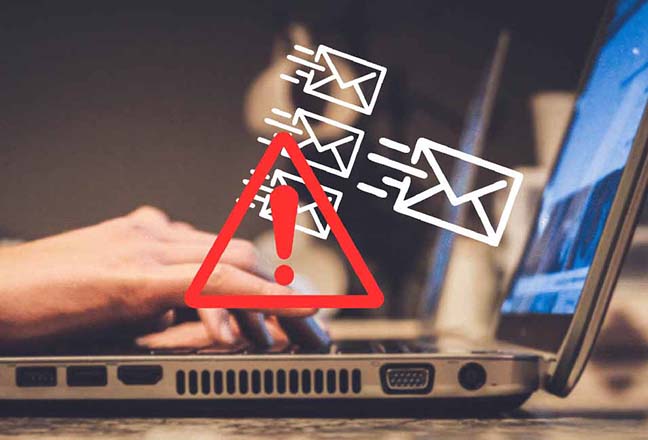 5, 4, 3, 2, or 1 Star -Etiquette for leaving reviews and guidance for using them in purchase decisions.
5, 4, 3, 2, or 1 Star -Etiquette for leaving reviews and guidance for using them in purchase decisions.
Review, Reviews, Reviews! Just about everyone you do business with is asking for a review these days but are you familiar with the basic etiquette of giving reviews? Reviews are wildly popular tools for consumers, marketers, and businesses of all kinds, but reviews are subjective. A survey by Pew Research found that a substantial majority of the public now incorporates these customer ratings and reviews into their decision-making processes when buying something. How do know what to say when you leave a review or how to rate a business fairly, and how do you know what to believe when you read a review?
How to rate a business when leaving a review? To some, it is second nature, but with so many businesses asking, it’s definitely worth talking about.
Always start at 5 stars ⭐⭐⭐⭐⭐
From here, it is pretty subjective, and reviews can be biased for a variety of reasons. Maybe the reviewer is a nice easy-going person and doesn't find much to complain about. Or maybe the reviewer is very particular and complains often. Maybe a reviewer leaves four instead of five stars because they had a bad day. Perhaps a reviewer leaves three stars because a serviceman was late due to a freeway crash that was completely out of their control. There are a myriad of reasons that people leave the reviews they do. Some reviewers just don’t give five stars. Hopefully, most of the time, what is written is a fair reflection of the business or product and is left by an actual customer.
Always start at 5 Stars when rating a service or product and come down from there based on your experience. Remember not to reduce your rating for things that are out of the business's control. For example, there is a deli in my hometown that has THE best pastrami sandwiches. They are a small mom-and-pop shop that is always crowded. Their size and location are part of what makes them who they are. I know that I should expect a wait most of the times I visit. In this case, I would not reduce my rating based on the demand.
Good reviews should include something to validate them like, “The plumber was here on time and took care of the problem quickly.” Or, "123 Painting CO was very attentive to details, completed the job in a timely manner, and the price was very competitive.”
The same goes for anything less than 5 stars. If you're going to leave a negative review, comment on what made you come down from 5 stars. For example, "The plumber was here on time, and the price was ok but he didn’t clean up his mess."
The purpose of leaving a review is to give insight to interested readers. Here are six tips for leaving reviews:
- Talk about more than one thing, for example, service and product, or service and price, and elaborate on atmosphere or quality.
- Be detailed and honest, and stick to the facts. There have been many lawsuits for defamation.
- Mind your manners. Don’t use profanity, be civil, and leave productive feedback. (It is more likely that a company will engage with you to make amends if you had a less-than-stellar experience.)
- Leave out personal information and links. Don’t call out employees by name online. Instead, send a message directly to the company.
- Update your review if warranted. Don’t be afraid to make an update if you have something to add that will give the reader a clearer picture or if something that was amiss was remedied.
- Make sure that you are leaving your review in the right place. Many companies have multiple locations or similar names. Don’t make the mistake of leaving a review for the wrong business.
- Remember, we are all human including you, so check your review for punctuation.
Using reviews to help make a buying decision
Many review sites take measures to ensure that reviews are left by actual customers, but it is not foolproof. Positive and negative reviews can be left by non-customers and customers alike.
According to the FTC, “Whether you’re looking for a hotel or searching for a new pair of shoes you probably turn to the internet for customer reviews from “five stars,” “likes,” “thumbs ups”, or “must buys” –a positive opinion could impact your decision to buy it or try it. While blogs, websites, and social networks are great resources –you may not be getting the whole story. For example, your Facebook Friend, who gushes about how a new dog food may be receiving free dog food in exchange for her glowing review, or the hotel, with the five-star rating might have paid a blogger to write a stellar review while the law says that reviewers should disclose their connection to the company, not all of them do.” It can be difficult to tell if the reviewer has a connection to the company, so before you buy anything based on a review:
- Do an internet search.
- Look for credible opinions from trusted sources.
- Compare reviews from a variety of websites, check 3-5 different review sites, and check for similar verbiage.
- Look for extremes and take them with a grain of salt
If you are a business owner, it's a good idea to start managing your reputation now. Keep track of your reviews, engage with customers who leave reviews, use them as insight into the success of your business, and spread the word.















